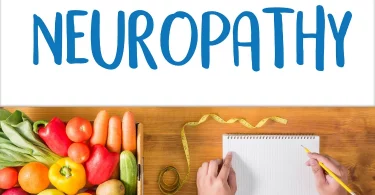
The excellent news from physiologists, neuroscientists and nutritionists are that we can fill some gaps in a child’s intelligence development.
A few simple tips can help improve children’s brain function and achieve great academic success.
1- Review the student’s diet

Numerous scientific studies show that proper diet and healthy eating habits “are essential to child’s intelligence to use the full potential of the brain during adolescence, promote mental development and maintain well-being.”
Food plays a significant role in ensuring adequate blood flow to the brain. Vitamins A, E, C, D and group B are most actively involved in its work and some minerals – magnesium, sodium, potassium, and calcium.
Vitamin B12 provides the activity of healthy cells (neurons) in the brain, and other B vitamins – niacin, riboflavin, thiamine and B6 – are essential for the production of neurotransmitters; that is, they ensure the coordinated work of cells.
The brain needs magnesium, iodine, Omega 3, vitamin E, folate, protein, and iron. And while scientists focus on the essential role of nutrients in the work of the brain’s “grey cells”, the content of vitamins and minerals in food is rapidly decreasing.
“Many people lack vitamin B12, and their copper levels are too low, which “can seriously affect brain function.”
2- Prepare breakfast according to the rules

Before sending the child to school, it is common for parents to give their children breakfast. And rightly so: observations show that “skipping a morning meal impairs thinking and learning ability.”
In countries where breakfast is provided in schools, students not only improve memory, attention, creativity, math and verbal skills. Breakfast is vital for children aged 4 to 10: as shown by tomography, glucose (the brain’s primary fuel) at this age is processed twice as fast as in adolescents.
However, refusing to eat in the morning is a common habit in 40% of adolescents in developed countries. But even for those who don’t skip breakfast, the menu is a disaster. For example, American teens prefer cold, dry cereals and fruit juice in the morning. Carbohydrates found in fruits and grains (bread, cereals) are quickly converted into glucose, feeding the brain. Moreover, carbohydrates promote the release of the neurotransmitter serotonin, which helps to calm down on the eve of an important test.
A lot of sugar isn’t the only enemy for IQ. Cereals, which are used to make cereals, crackers and muffins, are also under suspicion. Neurologist David Perlmutter, M.D., found that even if a person eats seemingly valuable grains (even organic ones) all their life, inflammation can appear in the body. That can cause attention deficit disorder, Alzheimer’s disease, depression and other health problems.
3- Make sure your child gets enough sleep.

“Many factors affect brain performance, including physical activity, good sleep and a balanced diet,” says Jill Castle, PhD.
Adequate sleep is so vital to child’s intelligence, the US Academy of Pediatricians developed guidelines for primary and secondary grades (6th to 12th). Which strongly advised school leaders to start classes no earlier than 8:30.
There is evidence that teens who sleep well have a lower risk of being depressed than their peers who have insomnia. Moreover, they perform better on screening tests and generally live more active lives.
Make sure that your children do not spend all the time at the lessons – there should be time for outdoor games in the schedule of children’s life.
4- Physical activity for your child’s intelligence.

Make sure that your child does not spend all the time at home – in the schedule of children’s lives; there should be time for walks, games, extracurricular hobbies. At the same time, the child should not rest at the tablet, checking the pages on social networks and placing likes on the posts he likes, but in an active mode in the fresh air.
Moreover, aerobic activity contributes to academic success, improves the child’s intelligence and helps him adapt faster to new circumstances. Here are just the classes you need to choose wisely. For example, children who have difficulty reading are better for tasks that develop coordination and a sense of time.
Train their brains with puzzles instead. Puzzles are more than just fun; they offer some fantastic health benefits as well. They can help increase their cognitive abilities. Scientific studies suggest they may even help stave off Alzheimer’s disease. Puzzles relieve stress, providing similar benefits to meditation or some forms of yoga. So, when they spill the pieces of a puzzle onto the table, they’re not only creating a beautiful artistically rendered image, they could be turning themselves into a picture of health.






Leave a Comment